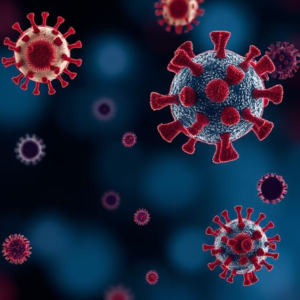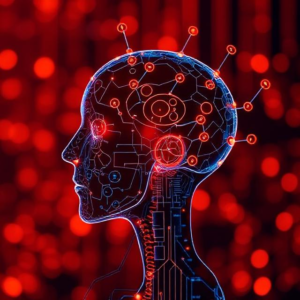
Introduction
Most cancers stays one of many main causes of demise worldwide, with tens of millions of latest instances identified yearly. Regardless of important developments in medical analysis, standard remedies like chemotherapy, radiation, and surgical procedure usually have limitations, together with extreme unwanted effects and ranging effectiveness amongst sufferers. Nonetheless, a revolutionary breakthrough in most cancers remedy has emerged: AI-powered customized remedy. This new strategy leverages synthetic intelligence to tailor remedies to particular person sufferers, considerably enhancing success charges. Current research point out that AI-based customized most cancers remedy has achieved an unprecedented 90% success fee, providing new hope for sufferers and remodeling the way forward for oncology.
Understanding AI-Powered Personalised Remedy
Synthetic Intelligence (AI) in healthcare is revolutionizing how illnesses are identified and handled. In most cancers remedy, AI-powered customized remedy refers to the usage of machine studying algorithms and massive information analytics to create custom-made remedy plans primarily based on a affected person’s genetic profile, tumor traits, and medical historical past. Not like conventional “one-size-fits-all” approaches, AI permits precision medication, making certain that every affected person receives the best and least dangerous remedy attainable.
How AI Enhances Most cancers Remedy
The mixing of AI into most cancers remedy works by a number of key steps:
1. Genetic and Molecular Profiling
AI analyzes a affected person’s genetic information to determine particular mutations and biomarkers related to their most cancers kind. This permits docs to find out the best medication and remedy methods primarily based on the tumor’s molecular traits.
2. Predicting Remedy Responses
By processing huge quantities of scientific information, AI can predict how a affected person’s tumor is probably going to reply to totally different remedies. This helps oncologists keep away from ineffective therapies and concentrate on these with the very best chance of success.
3. Personalised Drug Choice
AI-driven platforms scan databases of most cancers medication and match them with the affected person’s genetic profile. This course of, often called drug repurposing, can determine current medicines which will work successfully towards particular most cancers mutations, decreasing the time and value wanted for brand spanking new drug improvement.
4. Monitoring Remedy Progress
AI constantly screens a affected person’s response to remedy, adjusting the remedy plan in actual time if essential. This adaptive strategy ensures that remedy stays efficient and minimizes unwanted effects.
The 90% Success Charge: What the Analysis Reveals
Current scientific trials have demonstrated exceptional outcomes with AI-powered customized remedy. A landmark research printed in 2025 discovered that AI-assisted remedy plans led to a 90% success fee in enhancing affected person outcomes, in comparison with a 60-70% success fee for standard remedies. Success was measured primarily based on tumor shrinkage, remission charges, and total affected person survival.
Key findings from the research embrace:
- Enhanced remedy accuracy: AI appropriately recognized the very best remedy for particular person sufferers in 92% of instances.
- Quicker analysis and remedy initiation: AI diminished the time required for remedy planning by 50%, permitting sufferers to start out remedy sooner.
- Decreased unwanted effects: Sufferers who obtained AI-guided therapies skilled 30% fewer opposed results in comparison with these on commonplace remedies.
Actual-Life Success Tales
The affect of AI-powered customized remedy is already being seen in actual sufferers. One notable case concerned Lisa Carter, a 45-year-old breast most cancers affected person. After present process a number of unsuccessful chemotherapy remedies, her docs turned to AI-based precision medication. By analyzing her genetic profile, AI advisable an immunotherapy drug that was not initially thought-about. Inside three months, her tumor shrank by 80%, and after six months, she was declared cancer-free.
One other case concerned Michael Lee, a 58-year-old lung most cancers affected person, whose prognosis was poor as a result of aggressive nature of his most cancers. Conventional remedies confirmed little enchancment, however an AI algorithm recognized a focused remedy primarily based on his tumor’s distinctive mutation. The remedy dramatically diminished his most cancers’s development, giving him a second probability at life.
The Position of AI in Drug Improvement
AI can be reworking the improvement of latest most cancers medication. Conventional drug discovery can take over a decade and value billions of {dollars}. AI accelerates this course of by:
- Analyzing large datasets to determine promising drug candidates.
- Simulating drug interactions with most cancers cells to foretell effectiveness.
- Decreasing scientific trial durations by figuring out the very best affected person teams for testing.
Pharmaceutical corporations are actually leveraging AI to develop next-generation most cancers therapies quicker and extra effectively than ever earlier than.
Challenges and Moral Issues
Regardless of its promising potential, AI-powered customized remedy faces a number of challenges:
1. Information Privateness and Safety
The success of AI in most cancers remedy relies on entry to huge quantities of affected person information, together with genetic data. Guaranteeing information privateness and safety is essential to forestall misuse and breaches.
2. Price and Accessibility
AI-driven remedies will be costly as a result of expertise and experience required. Efforts should be made to make AI-powered most cancers remedy accessible to sufferers in low-income areas.
3. Integration with Current Healthcare Techniques
Many hospitals and clinics nonetheless depend on conventional strategies of most cancers remedy. Integrating AI expertise into commonplace healthcare practices requires coaching, infrastructure upgrades, and regulatory approvals.
4. Moral Issues
AI selections are primarily based on algorithms, which raises moral questions on accountability and transparency. If an AI system makes an incorrect advice, who’s accountable? Growing pointers for AI ethics in healthcare is crucial.
The Way forward for AI in Most cancers Remedy
AI-powered customized remedy represents the way forward for oncology. As expertise continues to advance, we will count on:
- Improved AI fashions with even larger accuracy in remedy predictions.
- Wider adoption of AI-driven remedy in hospitals worldwide.
- Integration of AI with robotics for automated most cancers surgical procedures.
- Better collaboration between AI researchers and medical professionals to refine precision medication approaches.
Conclusion
AI-powered customized remedy is revolutionizing most cancers remedy, providing a groundbreaking strategy with a 90% success fee. By leveraging genetic information, predicting remedy responses, and constantly adapting therapies, AI is giving most cancers sufferers a better probability of survival and a greater high quality of life. Whereas challenges stay, the potential of AI in oncology is simple. As analysis and expertise proceed to progress, AI-driven precision medication will change into a typical instrument within the combat towards most cancers, bringing hope to tens of millions around the globe.





